
views
It's hard to know where to begin...everyone's got a favourite Dalrymple, whether it's City of Djinns, or In Xanadu, or even White Mughals... His latest, The Last Mughal, is a tour de force, a fluid story that just brings alive the Rising of 1857 in Delhi in a way at least I haven't read before. (But then again, maybe the more historically-oriented have their own favourites, so do write in and let us know!)
So Dalrymple has been in and out of controversy, with various claims by and against by Indian historians (many of whom would rather not acknowledge him as one of their own) and his own claims that Indian historians serve the interests of Indian historians best, not the general reader... no this is not a debate on that, nor am I qualified to judge...It's precisely as a general reader (a term I personally think is a tad offensive!) that I'm writing this.
Dalrymple's gift is to bring alive events long past, to let you witness the chaos, the horrors of Delhi's Rising practically firsthand...to get a sense of perspective on what was going on - all the twisted contours of the journey the British and Zafar's Mughals and the sepoys were fated to make, that led to months of blood-letting, a glut we haven't seen since in the Capital.
Who hasn't visited Lal Qila and been horrified by the hideous barracks, really ugly remnants of a swaggering imperial power determined to wipe out all traces of native culture. For the Brits at the turn of the 19th century, the Mughals had just about lost all relevance and then of course they committed the ultimate sin, daring to rise up in revolt.
And yet. And yet, when you read of the atrocities, committed by the Gujars, the sepoys themselves, it's not all black and white...it's ugly, we're talking women and children after all, and this is a state of war, so it's not just murder and looting... It's torture, it's grimy, it's a distressing picture. The city, undeniably, it was the city that bled. It was the city that cowered behind closed doors, not open to the kind of mindless violence that was unfolding.
The Pandies (a not-so-flattering term derived from the original revolutionary Mangal Pandey) were hated by their former "masters", they were called "niggers", even worse, and not thought to amount to much...What a pity that Bahadurshah Zafar turned out to be the ditherer, who backed the wrong side, or the right side, depending on your point of view, just without going all out enough to make it work.
Dalrymple is sympathetic - Zafar was eighty two after all, when all this madness broke out, when he became de facto ruler of sepoys who weren't giving him much of an option...and he was best suited for a time of peace. A man of the arts, Zafar's court of course boasted Ghalib and Zauq, and he was no mean poet himself...just that the times were wrong.
The Last Mughal is not just a tribute to a time past, a time we can learn our lessons from (the Hindu-Muslim unity against the colonial power is something that should reinforce, I think, something secular, but obviously these are just larger brush strokes), it's also intensively researched, not least from The Mutiny Papers, based on translations by the super-talented Mahmood Farooqi (who's coming out with his own tome, it seems) and Bruce Wynell.
Yes, Dalrymple has accused Indian historians working on 1857 of ignoring Delhi, and worse of ignoring this treasure trove that the Mutiny Papers represents... Yes, he's been rebutted. Yes, he seems a little too clever, almost, even highlighting the references to "jihad" and "mujahideen", but this is post-9/11 so that's all it takes to grab our attention anyway right? (Also check out the Guardian article on imperial progpaganda, with the Tipu-Saddam comparison) But the point is none of the posturing, (however justified!) takes away from the book...
It's an educational and ultimately, a moving experience...maybe that's the most fitting tribute to the Rising, after all...
(The Last Mughal is available for Rs 695/- in Hardback...check out interviews and other book stories in the In-Depth section and write in with feedback!)About the AuthorAmrita Tripathi Amrita Tripathi is a news anchor with CNN-IBN, and also doubles up as Health and Books Editor. An MA in Philosophy from St Stephen's College, Delhi Un...Read Morefirst published:November 16, 2006, 13:12 ISTlast updated:November 16, 2006, 13:12 IST
window._taboola = window._taboola || [];_taboola.push({mode: 'thumbnails-mid-article',container: 'taboola-mid-article-thumbnails',placement: 'Mid Article Thumbnails',target_type: 'mix'});
let eventFire = false;
window.addEventListener('scroll', () => {
if (window.taboolaInt && !eventFire) {
setTimeout(() => {
ga('send', 'event', 'Mid Article Thumbnails', 'PV');
ga('set', 'dimension22', "Taboola Yes");
}, 4000);
eventFire = true;
}
});
window._taboola = window._taboola || [];_taboola.push({mode: 'thumbnails-a', container: 'taboola-below-article-thumbnails', placement: 'Below Article Thumbnails', target_type: 'mix' });Latest News
The Last Mughal by William Dalrymple
It's hard to know where to begin...everyone's got a favourite Dalrymple, whether it's City of Djinns, or In Xanadu, or even White Mughals... His latest, The Last Mughal, is a tour de force, a fluid story that just brings alive the Rising of 1857 in Delhi in a way at least I haven't read before. (But then again, maybe the more historically-oriented have their own favourites, so do write in and let us know!)
So Dalrymple has been in and out of controversy, with various claims by and against by Indian historians (many of whom would rather not acknowledge him as one of their own) and his own claims that Indian historians serve the interests of Indian historians best, not the general reader... no this is not a debate on that, nor am I qualified to judge...It's precisely as a general reader (a term I personally think is a tad offensive!) that I'm writing this.
Dalrymple's gift is to bring alive events long past, to let you witness the chaos, the horrors of Delhi's Rising practically firsthand...to get a sense of perspective on what was going on - all the twisted contours of the journey the British and Zafar's Mughals and the sepoys were fated to make, that led to months of blood-letting, a glut we haven't seen since in the Capital.
Who hasn't visited Lal Qila and been horrified by the hideous barracks, really ugly remnants of a swaggering imperial power determined to wipe out all traces of native culture. For the Brits at the turn of the 19th century, the Mughals had just about lost all relevance and then of course they committed the ultimate sin, daring to rise up in revolt.
And yet. And yet, when you read of the atrocities, committed by the Gujars, the sepoys themselves, it's not all black and white...it's ugly, we're talking women and children after all, and this is a state of war, so it's not just murder and looting... It's torture, it's grimy, it's a distressing picture. The city, undeniably, it was the city that bled. It was the city that cowered behind closed doors, not open to the kind of mindless violence that was unfolding.
The Pandies (a not-so-flattering term derived from the original revolutionary Mangal Pandey) were hated by their former "masters", they were called "niggers", even worse, and not thought to amount to much...What a pity that Bahadurshah Zafar turned out to be the ditherer, who backed the wrong side, or the right side, depending on your point of view, just without going all out enough to make it work.
Dalrymple is sympathetic - Zafar was eighty two after all, when all this madness broke out, when he became de facto ruler of sepoys who weren't giving him much of an option...and he was best suited for a time of peace. A man of the arts, Zafar's court of course boasted Ghalib and Zauq, and he was no mean poet himself...just that the times were wrong.
The Last Mughal is not just a tribute to a time past, a time we can learn our lessons from (the Hindu-Muslim unity against the colonial power is something that should reinforce, I think, something secular, but obviously these are just larger brush strokes), it's also intensively researched, not least from The Mutiny Papers, based on translations by the super-talented Mahmood Farooqi (who's coming out with his own tome, it seems) and Bruce Wynell.
Yes, Dalrymple has accused Indian historians working on 1857 of ignoring Delhi, and worse of ignoring this treasure trove that the Mutiny Papers represents... Yes, he's been rebutted. Yes, he seems a little too clever, almost, even highlighting the references to "jihad" and "mujahideen", but this is post-9/11 so that's all it takes to grab our attention anyway right? (Also check out the Guardian article on imperial progpaganda, with the Tipu-Saddam comparison) But the point is none of the posturing, (however justified!) takes away from the book...
It's an educational and ultimately, a moving experience...maybe that's the most fitting tribute to the Rising, after all...
(The Last Mughal is available for Rs 695/- in Hardback...check out interviews and other book stories in the In-Depth section and write in with feedback!)











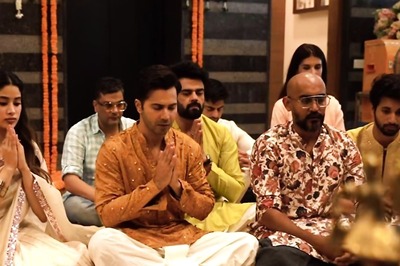



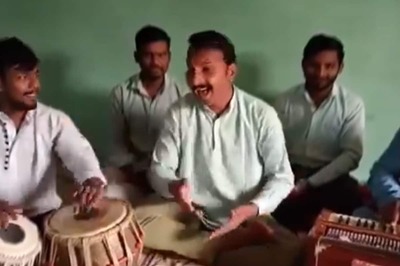
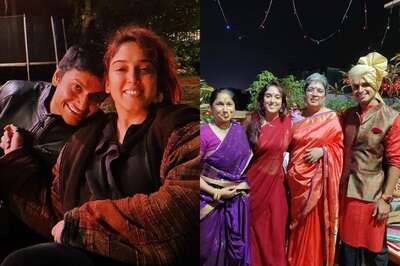
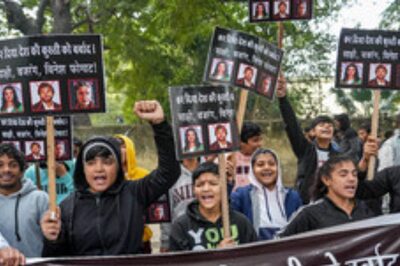
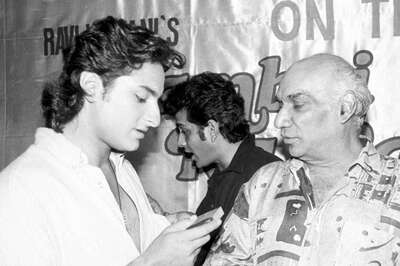

Comments
0 comment